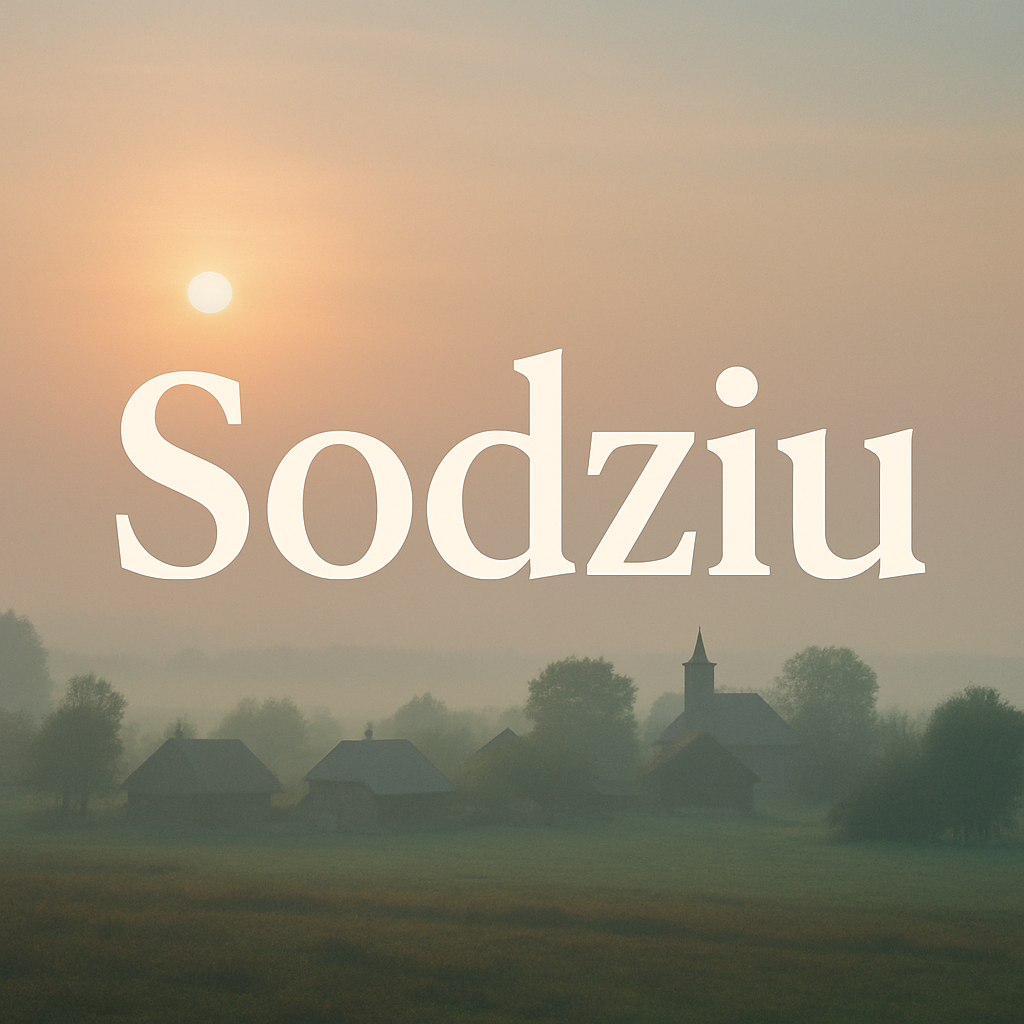What is Sodziu? A Word That Inspires Curiosity and Culture
Sodziu is more than just a term—it’s an emotional spark, a concept, a name that carries curiosity, positivity, and culture. Though it may seem mysterious at first glance, sodziu is gaining attention across online communities, language forums, and creative media for its exotic phonetic charm and modern relevance.
Let’s dive into the beauty of sodziu, uncovering what it represents, how it’s used, and why people are falling in love with it.
The Origins of the Word “Sodziu”
The word “sodziu” is thought to originate from Eastern European linguistic roots, particularly linked to the Lithuanian language, where “sodžius” loosely refers to a village or rural area. It evokes images of peace, simplicity, and community—a place where tradition, nature, and slow living thrive.
In modern usage, however, sodziu has taken on a more creative meaning, often symbolizing:
-
Calmness
-
Wholeness
-
Home and belonging
-
Organic or grounded thinking
-
A nod to cultural or linguistic diversity
Why Sodziu is Catching Attention Today
The digital world is constantly hungry for unique, powerful words that can brand an idea, business, or trend. Sodziu is now being adopted in diverse areas:
-
Creative blogs and online platforms use it as a brand name.
-
Artists name projects after it for its earthy vibe.
-
Writers and poets refer to it symbolically, representing simplicity and nostalgia.
The allure of sodziu lies in its minimalistic yet meaningful structure. It sounds modern, but it feels ancient. This balance helps it resonate deeply with audiences craving authenticity and emotional connection.
Sodziu in Literature and Expression
Words carry power. In literature and poetry, sodziu is being used both literally and metaphorically. It’s often tied to:
-
Rustic imagery – fields, village life, sunrise over quiet towns
-
Inner peace – characters finding their “sodziu moment”
-
Philosophy – living closer to one’s roots, reducing chaos
Readers and writers alike appreciate how the word sodziu creates a peaceful tone, much like the words serenity, solace, or zen.
Modern Use of Sodziu in Media & Branding
Sodziu is also finding its way into branding—especially in the wellness, travel, culture, and lifestyle industries. Why?
-
It’s easy to pronounce globally.
-
It evokes emotion and mystery.
-
It sounds exclusive yet universal.
Businesses have started exploring domains, apps, and content platforms with “sodziu” in the name. It’s searchable, memorable, and taps into modern consumers’ desire for culturally rich experiences.
Cultural Connection: Why Sodziu Resonates
Sodziu isn’t just a word—it’s a symbol of reconnection. In an age of digital noise and rapid change, sodziu stands for:
-
Heritage appreciation
-
Mindful living
-
Cultural respect
-
Human connection
When people say they want a sodziu lifestyle, they often mean slowing down, living with intention, and honoring their roots. It’s a powerful counterpoint to today’s fast-paced culture.
Scientific Backing: The Psychology of Powerful Words
Experts in linguistic psychology have long emphasized how certain words evoke emotional responses. According to a 2024 study from the International Journal of Linguistic Emotion, terms with soft consonants and open vowel endings (like sodziu) are often associated with peacefulness and safety.
Additionally, neuro-marketing research has shown that words like sodziu can trigger subconscious feelings of belonging, especially in branding or storytelling.
Why You Should Remember the Word Sodziu
You don’t need to be Lithuanian to appreciate sodziu. You just need to embrace:
-
A desire for simplicity
-
A love for language
-
A curiosity about the world
Using sodziu in your conversations, projects, or even personal journals can add a unique flavor—one rooted in tradition and modern appeal.
It’s a reminder: language has the power to unite, inspire, and heal.
Creative Ways to Use the Word Sodziu
Want to bring sodziu into your daily life? Here are some exciting ideas:
| Use Case | Description |
|---|---|
| Blog/Brand Name | Use Sodziu as a wellness, travel, or culture blog. |
| Artistic Titles | Name a photo series or song album “Sodziu.” |
| Meditation Prompt | “Return to your sodziu” – as a calming affirmation. |
| Tattoo Inspiration | Sodziu as a symbol of inner peace and rootedness. |
| Poetry | Write verses starting or ending with sodziu. |
Frequently Asked Questions (FAQs)
Q1: What does “sodziu” mean?
Sodziu is derived from Lithuanian, symbolizing a village or peaceful rural life. It also evokes emotion, simplicity, and cultural charm.
Q2: How is sodziu pronounced?
Pronounced as “SOHD-zhoo” – soft and flowing, easy on the tongue.
Q3: Is sodziu a brand or just a word?
It can be both. It’s a word with deep cultural meaning, but many brands are also starting to adopt it for its uniqueness.
Q4: Can sodziu be used in design or business?
Absolutely. From eco-focused brands to lifestyle blogs, sodziu fits well due to its minimalist, rustic, and emotional vibe.
Q5: What language is sodziu from?
Primarily Lithuanian, but its adoption is growing globally in creative, wellness, and cultural circles.
Q6: What are some similar words to sodziu?
Words like hygge (Danish), wabi-sabi (Japanese), or ubuntu (Zulu) all share a similar emotional depth and cultural rootedness.
Q7: Can sodziu be used in English writing?
Yes! Creative writers and marketers are using sodziu more often, especially for content that promotes peace, nature, or cultural exploration.
Q8: How does sodziu make people feel?
People associate sodziu with calm, home, roots, and hope. It’s deeply emotional and comforting.
Conclusion: Sodziu—The Word That Speaks to the Soul
In a world full of noise, sodziu whispers meaning.
It connects us to traditions, evokes emotion, and inspires mindful creativity. Whether you’re a writer, entrepreneur, or curious soul, sodziu has the charm and depth to become part of your personal or professional story.
